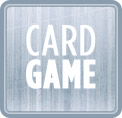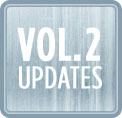Updates 20 Jul 2007 12:00 am by David !
The final lineup.
Before we say anything else — it’s very important for us to mention that if this book does well, it may open up opportunities for us to publish some of the great stories that we passed on this time, as well as open the field again for new submissions. So please subscribe to this site’s RSS feed or email list to get updates and be notified when you can buy the book!
Now then.
Over the course of three months, 615 writers on five continents collectively generated 681 distinct visions of the Machine of Death. We read stories set in the far future and the distant past; stories of faith, love and joy as well as stories of violence, hatred and despair. Writers explored topics as diverse as family, science, religion, marriage, childbirth, education, politics, warfare, insurance, healthcare, and sex, to name but a few. The Machines in these stories were of every possible description, from tiny keychain models to room-sized supercomputers. And the stories themselves covered every genre imaginable, including science fiction, family drama, magical realism, light comedy, dark comedy, conspiracy thriller, police procedural, zombie horror, parlor mystery, historical romance, epistolary tearjerker, one-act play, graphic novel, and epic poetry. Every section in the bookstore could have Machine of Death stories in it.
So it must be said first and foremost: congratulations to all the writers, selected or not — even just finishing and submitting a story is more than most people get around to doing.
We read every submission without prejudice. Over time, however, our tastes gravitated towards certain types of stories and away from others, as we worked to build the very best book for a reader unfamiliar with the concept. That meant putting a premium on economy and variety — in some cases, we had to turn down extraordinarily long but otherwise excellent work; in others, we were forced to choose between two (or more) great stories that covered very similar ground.
But, of course, it wasn’t always difficult. Some stories we simply read and fell in love with immediately.
Despite their significant differences, the stories we chose generally had key things in common. Here are the things we looked for:
— Novel ideas. Everyone that wrote a story only had the same little bit of background info that we provided, so it’s not surprising that many writers landed upon similar themes. (Hence the creation of the “Approaches to Avoid” page, early in the process.) And no writer could read all the other stories, so nobody knew what had or hadn’t already been done. Yet some stories still blazed trails into totally original territory that felt fresh even late in the reading process.
Originality’s a fine line to walk, considering that the book will be an average reader’s only introduction to the concept — we didn’t want stories that were so far out there that they didn’t contribute to what felt like a shared world. And originality only goes so far; you also have to have:
— Well-written prose. We were thrilled to have submissions from writers with all levels of experience. Some very good stories were from writers who told us they’d never written before, and we also read many excellent pieces from writers with extensive publishing credits. Regardless of the writer’s background, the very best stories were exceptionally well-crafted, easy to read and understand, with compelling themes, sound narrative structure, and — very importantly — emotionally satisfying conclusions.
But good writing’s not enough if you don’t also have:
— Relatable characters. We read plenty of descriptions of events and explanations of concepts. We read history lessons, news reports and school essays. But when we read interesting stories about interesting people doing interesting things, we sat up and took notice. The best characters weren’t just three-dimensional creations acting and reacting like real humans — they were also likable, or fascinating enough in some way that we enjoyed spending time with them.
With so many good stories to choose from, more often than not the deciding factor was:
— A light touch. Sure, our book’s about death, but that doesn’t mean we want to be depressed reading it! We were definitely drawn to stories with heart. A sense of fun trumps a ponderous journey into misery any day of the week. We’re not writing Chicken Soup for the Machine of Death Soul, so we weren’t after sappy sentiment — but after reading story after story about suicide, loneliness, and despair, any story that didn’t end with everyone sprawled out dead like a Shakespearean tragedy was a welcome relief.
The following stories were our very favorite submissions to the Machine of Death project. Each title is a method of death described in the story.
• “FLAMING MARSHMALLOW,” by Camille Alexa. This story of high school cliques was funny and genuine, with a great, punchy ending.
• “WHILE TRYING TO SAVE ANOTHER,” by Daliso Chaponda. Daliso’s unique take on the Machine informed this story of lost souls making the most of the time they have left.
• “ALMOND,” by John Chernega. Told as a series of journal entries, John’s story of a worker at a Machine laboratory was tense and compelling.
• “VEGETABLES,” by Chris Cox. This tale of a disgruntled co-worker won us over with its distinctive, sneering wit.
• “ANEURYSM,” by Alexander Danner. A pitch-perfect story about a magician who hates insipid party games.
• “HEAT DEATH OF THE UNIVERSE,” by James Foreman. High school romance is hard to get right, but the frantic, teenage urgency of James’ characters leapt off the page.
• “EXPLODED,” by Tom Francis. This story about the accidental inventors of the machine felt brutal, desperate, and real.
• “PIANO,” by Rafa Franco. Rafa’s charismatic style brightly seasoned this account of a soldier running from his fate.
• “PRISON KNIFE FIGHT,” by Shaenon K. Garrity. The worst fate for a child born into privilege? Perhaps, but a delightful story for the rest of us.
• “AFTER MANY YEARS, STOPS BREATHING, WHILE ASLEEP, WITH SMILE ON FACE,” by William Grallo. William’s tale of a wallflower at a death-themed party was full of great details and wistful melancholy.
• “DROWNING,” by C. E. Guimont. This piece about psychics put out of work by the Machine took a little wrapping our minds around — and we liked that.
• “LOVE AD NAUSEUM,” by Sherri Jacobsen. A quirky window into a woman’s life through a series of personal ads.
• “FRIENDLY FIRE,” by Douglas J. Lane. We could feel the sweat in this powerful account of an idealist caught up with anti-Machine revolutionaries.
• “DESPAIR,” by K. M. Lawrence. This gripping story about doctors faced with impossible choices captivated us with its thoughtfulness.
• “NOT WAVING BUT DROWNING,” by Erin McKean. With a straightforward style, Erin brought charm and sincerity to this story of a girl’s coming of age.
• “CANCER,” by Camron Miller. Camron’s lyrical descriptions enliven this tale of temptation and class.
• “MURDER,” by Randall Munroe, asks a dangerous question: what happens when physical science rejects the idea of precognition?
• “NOTHING,” by Pelotard. A colorful, magical sensibility added a unique spark to this story of a girl seeking out her grandfather.
• “HIV INFECTION FROM MACHINE OF DEATH NEEDLE,” by Brian Quinlan. So many people latched onto this self-reflexive concept that we knew we had to have at least one.
• “CASSANDRA,” by T. J. Radcliffe. A darkly chilling tale of a woman desperately trying to prevent an unknown war.
• “IMPROPERLY PREPARED BLOWFISH,” by Gord Sellar. This story of yakuza hitmen had a distinctive voice and a great, pulpy flavor.
• “LOSS OF BLOOD,” by Jeff Stautz. Of the many sci-fi stories we read, Jeff’s dystopian story of future paramedics had the best kick-in-the-gut ending.
• “MISCARRIAGE,” by James L. Sutter. Though it was less narrative-driven, we found plenty to grab onto emotionally in this quiet story about hope and second chances.
• “FIRING SQUAD,” by J. Jack Unrau. The engrossing detail of its Third World setting set this story way apart from the pack.
• “SHOT BY SNIPER,” by Bartholomew von Klick. Sharp and intense, this story of soldiers in combat thrust us headlong into the action.
• “KILLED BY DANIEL,” by Julia Wainwright. The complex family dynamics in this story struck us as compassionate, genuine, and heartbreaking.
• “TORN APART AND DEVOURED BY LIONS,” by J. Channing Wells. Hands down the funniest story we read, this one also had a great take on the insurance implications of the Machine.
• “SUICIDE,” by David Michael Wharton. In dark, snappy fashion, David’s story handily examined the repercussions of trying to prove the Machine wrong.
• “LOVE,” by Kit Yona. Kit brought an earnest simplicity to this story of a young couple forever(?) in love.
In addition, the book will include an illustration by Katie Sekelsky, and the following stories by the three of us:
• “STARVATION,” by M. Bennardo. Two soldiers stranded in the jungle turn against each other in this visceral story of survival.
• “CANCER,” by David Malki ! A son struggles to complete his relationship with his father before his father’s prediction comes to pass.
• “MURDER AND SUICIDE, RESPECTIVELY,” by Ryan North. Two scientists realize that the Machine may allow them to send messages backwards through time.
Thank you, everyone, for your enthusiastic response, and believe us when we say, this is gonna be a great book.
– Ryan, Matthew and David !
UPDATE: We have added the stories “EXHAUSTION FROM HAVING SEX WITH A MINOR,” by Ben “Yahtzee” Croshaw, and “COCAINE AND PAINKILLERS,” by David Malki !











